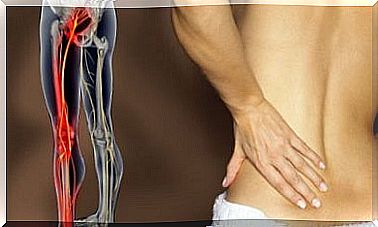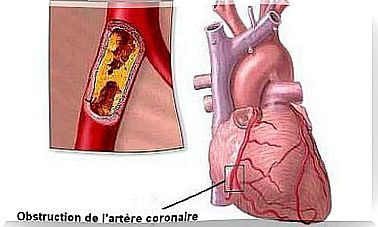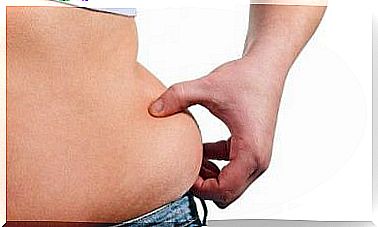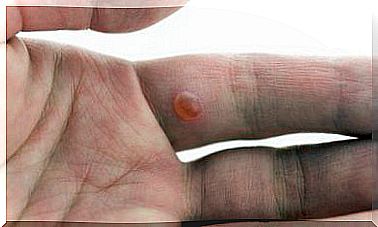Treatment Of Postpartum Depression
Mothers who experience postpartum depression usually experience extreme sadness, anxiety and fatigue. Take stock of the treatment options.

Postpartum depression is a mood disorder that can affect women after childbirth. It can be moderate to intense, and is caused by a combination of physical and emotional factors.
Mothers who suffer from this type of depression feel usually extreme sadness, anxiety and fatigue. This emotional and physical state makes it difficult to perform the daily tasks of caring for the newborn and themselves.
What Are the Causes of Postpartum Depression?
When women give birth, estrogen and progesterone levels drop rapidly . These sudden changes in hormone levels can cause mood swings . Additionally, many women cannot get enough rest to fully recover from childbirth.
The constant lack of sleep and rest can lead to physical discomfort and exhaustion. Both of these factors can contribute to the development of postpartum depression.
What are the symptoms of postpartum depression?

Postpartum depression occurs in about 15% of deliveries. Good that she may start a little earlier, it is more common after the baby is born . But it usually starts between a week and a month after giving birth.
The most common symptoms are:
- Sadness and crying more often than usual or for no apparent reason.
- Anxiety and irritation.
- Sleeping too long or too short, even when the baby is asleep.
- Lack of concentration and loss of interest in activities that were enjoyable.
- Loss of appetite or vice versa, overeating.
- Social isolation (friends and family).
- Difficulties bonding with the baby , while doubting its ability to deal with it.
As symptoms can vary from woman to woman, your doctor can determine if they are due to postpartum depression or some other factor.
Are there risk factors for postpartum depression?
Postpartum depression can affect any woman, regardless of age, race or economic status. However, some women may be at greater risk for postpartum depression.
There may be an increased risk of postpartum depression in women who have one or more of the risk factors following:
- Symptoms of depression during or after a previous pregnancy
- Of history of depression or from bipolar disorder has a another time in your life and a family history of depression or other mental illnesses
- Suffering from stressful situations during pregnancy or soon after childbirth . For example, medical complications during childbirth such as a premature birth or a baby born with health problems.
- Lack of emotional support from the from your husband, partner, family or friends
Treatments for postpartum depression
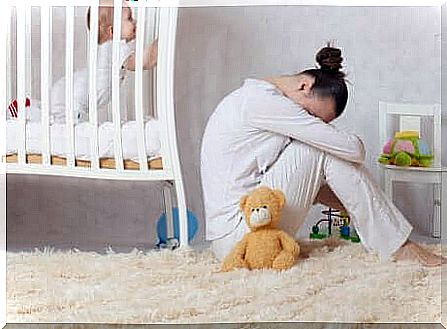
To overcome postpartum depression, you can use pharmacological treatment , psychotherapy, or both. It will be up to the doctor to assess which is the best solution in each case.
Among the treatments to choose from, we can mention:
Psychotherapy
Sessions with the specialist can be of two types. These two types of psychotherapy have been shown to be particularly effective in the treatment of postpartum depression:
- Cognitive Behavioral Therapy (CBT ) – which helps people recognize and change their thoughts and negative behaviors .
- Interpersonal therapy (IPT) : which helps people understand and live with problematic personal relationships.
Antidepressants for postpartum depression
The antidepressants act on chemicals in the brain that are involved in regulating mood.
These types of medications are generally considered safe for breastfeeding. However, the specialist must assess the risks and benefits of these drugs for mother and baby.
In addition to treatments, the support of the family and the environment, as well as the attitude of the person who suffers from this disorder are also very important to overcome depression.
Complementary methods
Additional methods that can help overcome postpartum depression are:
- Get enough sleep is very important for physical and mental health. It is necessary try to match sleep mother and baby, so that when the child is resting, the mother can also rest and recover.
- To have spare time : If possible, try to have free time to be alone, with your partner or with friends.
Without treatment, this type of depression can last for months or years. Besides affecting the health of the mother, it can interfere with her ability to care for and care for her baby.

